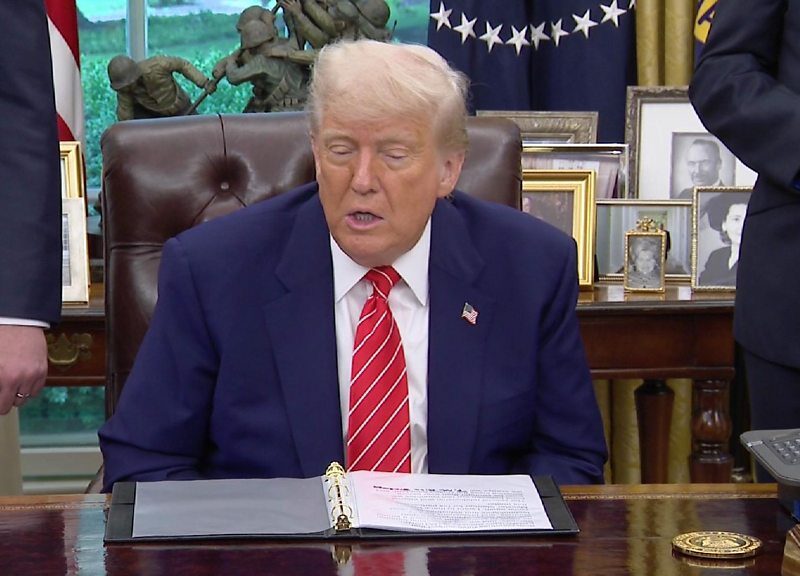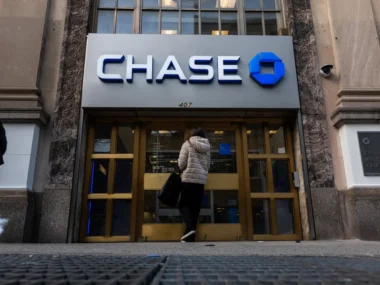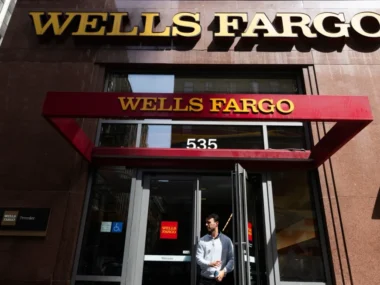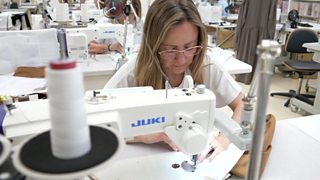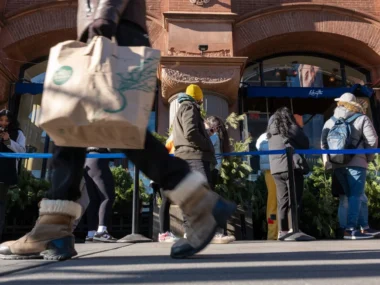The US has agreed to lower import taxes on a limited number of British vehicles and permit certain steel and aluminium imports without tariffs, under a new understanding with the UK.
The move provides some relief to major UK sectors affected by the tariffs introduced by President Donald Trump after his January return to office.
However, a 10% tariff will still apply to most UK products.
Despite being praised by both governments as an important step, experts noted that the deal doesn’t substantially change trade terms compared to the pre-2025 landscape. No official agreement was signed on Thursday, and both sides shared minimal specifics.
At a Jaguar Land Rover facility in the West Midlands, Sir Keir Starmer called the deal a “fantastic platform.”
He said it protects thousands of UK jobs, particularly in automotive and steel, and reaffirmed that “the UK has no greater ally than the United States.”
Meanwhile, President Trump, speaking from the White House, labeled it a “great deal” and dismissed suggestions that its impact was being exaggerated, stating, “This is a maxed out deal that we’re going to make bigger.”
What is in the deal?
The US has agreed to cut import duties on British cars—reversing last month’s hike by President Trump from 10% to 25%—now setting the tax at 10% for up to 100,000 vehicles annually.
This change benefits high-end manufacturers like Jaguar Land Rover and Rolls Royce, though the cap mirrors current export levels, potentially limiting future expansion.
UK Business Secretary Jonathan Reynolds told the BBC the country was just days away from losing thousands of auto industry jobs due to the tariffs, calling the deal a critical lifeline.
Steel and aluminium tariffs, also raised to 25% earlier this year, will be reduced under a renewed quota system, according to the UK Prime Minister’s Office.
Additionally, both nations agreed to permit 13,000 metric tonnes of beef imports from each other annually, duty-free. The US, which previously faced 20% tariffs and a 1,000-tonne limit, expects a significant boost in exports.
In total, the US estimates the agreement will unlock $5 billion in export potential, including $700 million in ethanol and $250 million in other farm goods.
“This deal is incredibly important,” said US Agriculture Secretary Brooke Rollins.

What is the reaction?
UK Steel Director General Gareth Stace praised the deal, calling it a “major relief” for the struggling steel industry and crediting the UK government’s steady negotiation approach.
However, reactions from the broader business community were mixed. Duncan Edwards, CEO of BritishAmerican Business, admitted the deal was an improvement but noted it still fell short of pre-tariff conditions, saying, “It’s better than yesterday but not better than five weeks ago.”
While Labour MPs backed the agreement, other political parties raised concerns about transparency and fairness. Conservative leader Kemi Badenoch criticised the deal, claiming it saw the UK cut tariffs while the US raised them, declaring, “This is not a historic deal… we’ve been shafted.”
The Liberal Democrats demanded a parliamentary vote, warning it would be “complete disrespect to the public” to bypass MPs. Party leader Sir Ed Davey cautioned that any agreement with President Trump required close scrutiny, warning that “Trump’s trade tariffs are still hurting British industries.”
Reform UK leader Nigel Farage offered a more optimistic view, calling the deal a “step in the right direction.” Speaking to the BBC, he said it showed progress and highlighted it as a “Brexit benefit” made possible by UK autonomy in trade negotiations.
Win for US ranchers?
The US and UK have been negotiating a trade deal since Trump’s first term, nearly reaching a mini-agreement back then. However, the US has consistently pushed for changes to benefit its agricultural and pharmaceutical sectors, which have been politically contentious for the UK.
It remains unclear how much progress has been made on these issues. The National Cattlemen’s Beef Association hailed the in-principle deal as a significant win for US ranchers. However, the US Meat Export Federation expressed uncertainty, still seeking more details on the changes.
The UK assured that there would be no weakening of food import standards, but Michael Pearce from Oxford Economics cautioned that “the devil will be in the details,” noting that the announcement didn’t alter their economic forecasts.
Pharmaceutical issues also remain unresolved. Trump has repeatedly called for tariffs on drug imports to strengthen US manufacturing. While the UK stated that the US had agreed to offer British firms “preferential treatment,” there is still uncertainty. Ewan Townsend, a healthcare lawyer, noted that the industry is left “waiting to see exactly what this preferential treatment will mean.”

